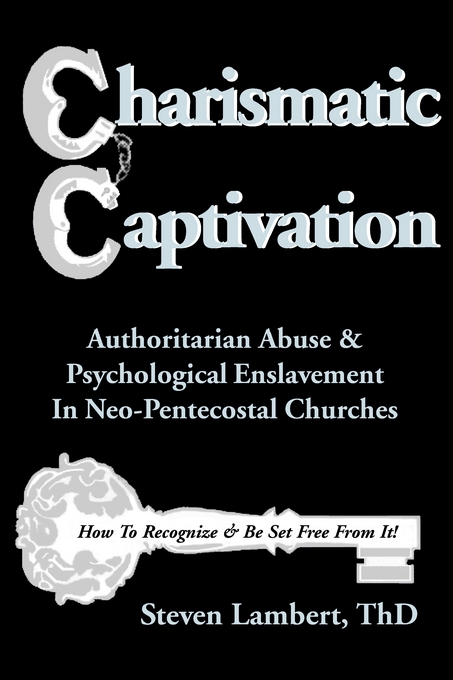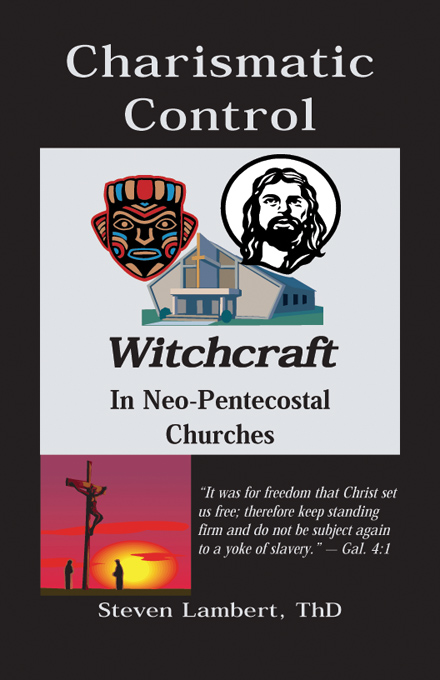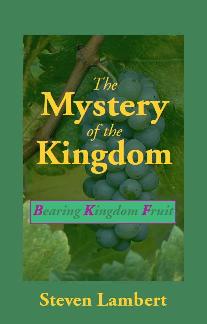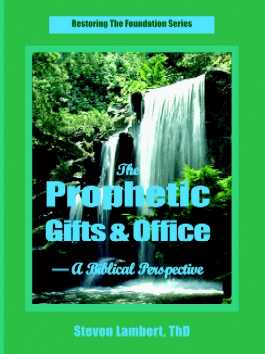The following is an excerpt of my book, The Mystery of the Kingdom, which is an exposition of what Jesus indicated was "The Paramount Parable"—The Parable of the Sower—meaning it was the most important of all His parables, in that it revealed the keys to the "mystery of the kingdom" of God. The excerpt is taken from a chapter in which I examine the second category of hearers in the parable who Jesus described as being "like rocky ground." He went on to reveal that this category of hearers of the Word are only "temporary believers," who "have no firm root in themselves, but are only temporary" (Mk. 4:17).
Luke’s account of this part of Jesus’ parable aptly describes their walk this way: "they believe for a while, and in time of temptation fall away" (Lk. 8:13). This is an extremely crucial statement in that Jesus Himself explicitly and definitively indicates that these people were indeed bona fide "believers" rather than bogus believers as proponents of "once saved always saved" Eternal Security doctrine allege. Jesus said, "they believe for a while," which inherently means there came a time when they ceased being and living like a true believer, or saint. To argue otherwise is to call Jesus a liar. Likewise, to say these once bona fide believers did not subsequently fall away after having truly believed is to call Jesus a liar as well, for Jesus explicitly stated, "and in time of temptation (they) fall away."
Unfortunately, there are many people today who are of this category of only temporary believers. There was a point at which they truly believed in and accepted the Gospel of Christ, and were thereby Born Again and saved. At first, they are willing to follow Jesus and obey His Word. But, later, when they began to meet with temptation (Lk. 8:13), afflictions, and persecutions (Mk. 4:17), these temporary believers fall away in their relationship with God.
The Mystery of the Kingdom book was first published in 1984, yet its message is perhaps even more applicable now in this hour than ever before. Through the Spirit, the Apostle Paul looked two-thousand years ahead into these end-times and predicted with amazing precision the prevailing spiritual atmosphere and resultant apostasy:
2 Timothy 3:1-5
But realize this, that in the last days difficult times will come. For men will be lovers of self, lovers of money, boastful, arrogant, revilers, disobedient to parents, ungrateful, unholy, unloving, irreconcilable, malicious gossips, without self-control, brutal, haters of good, treacherous, reckless, conceited, lovers of pleasure rather than lovers of God, holding to a form of godliness, although they have denied its power; Avoid such men as these.
1 Timothy 4:1-2Some theologians postulate this last passage refers to and was fulfilled in the 1,200-year period known as "The Dark Ages" that culminated with the Protestant Reformation. Personally I am among those who believe that period was indeed a corporate apostasy of the Church but that another fulfillment of that prophecy is being fulfilled in these end-times in which we are living now.
But the Spirit explicitly says that in later times some will fall away from the faith, paying attention to deceitful spirits and doctrines of demons, by means of the hypocrisy of liars seared in their own conscience as with a branding iron....
Then there are the multitudes of professing Christians, Protestant and non, today who align with myriad others of the previous four centuries and subscribe to the Calvinistic "Eternal Security" doctrine, also known as "once-saved-always-saved," that posits that no matter what one does or how he/she lives after "confessing Christ," it is impossible for them to fall away and "lose" their salvation. The debate juxtaposing Calvinism (Eternal Security) to Arminianism (apostasy is possible), as theologians refer to these disparate doctrines, has existed since the 16th Century and continues to be a point of contention and divisiveness yet today. But, it is far more than just another abstract theological controversy studied by erudite seminarians preparing for assimilation into the ranks of the professional clergy. The matter of whether or not a bona fide believer can become so apostate so as to forfeit his/her spiritual birthright is the core issue of these end-times as well as the entire specter of so-called "revival" that so many profess to believe is coming.
Will real "revival," as the prominent principals of the past, albeit temporary, revivals passionately insisted and with whom many modern prophetic revival prognosticators adamantly agree, be contingent entirely upon the depth of personal repentance—i.e., real mindset and lifestyle changes—of those claiming to belong to Christ? Or, will end-time "revival," as some neo-prophets purport, consist merely of a global upsurge in signs and wonders and displays of supernatural power that God initiates for "evangelism" sake without respect or relation to the personal spiritual condition of those comprising the Church and therefore the Church itself? Will the now popular refrain by neo-prophets concerning the last days that "the glory of the Lord shall cover the earth as the waters cover the seas," have any correlation to the Betrothed of Christ and her reflection of the Glory of the Bridegroom, or just be something God does separately from her?
I don’t know what you believe to be the answer to this crucial question, but as you read this excerpt of The Mystery of the Kingdom, what I believe the answer to be will be abundantly clear. Indeed, if you are interested, this section coupled with the succeeding two chapters of the book make my beliefs on the matter unequivocally clear. Moreover, I believe…no, let me rephrase that…I KNOW—from personal experience—there is a personal COST to serving Christ all the way to the end. Some of that cost I have paid already, but I fully anticipate that there shall yet be more to be paid, which I am determined to pay…no matter what and no matter how dear. "Though He slay me, yet will I trust Him!"
Now, my question to you is: Are YOU willing to pay the price…no matter what and how dear it may be? Or, will you in the end prove to be one of those Jesus called, "temporary believers," whose fate, according to Jesus Himself, will be eternal separation from God rather than eternal salvation for which He paid the full price?
Counting the Cost
Will it cost you something to serve Jesus?
You better believe it will! You must surrender your entire being—spirit, soul, and body—over to Jesus. You must die to every form of sin and unrighteousness (Rom. 6:1-11). You must put to death the sinful deeds of the fleshly body (Gal. 5:24). And, you must submit your mind, will, and emotions to the Lordship of Jesus Christ.
Jesus in no way preached an "easy gospel," as some allege today. He never used euphemistic persuasion to call people to Himself. He never expected people to come to Him unadvisedly. Quite to the contrary, He taught that people should first "count the cost" before they make a decision to follow after Him, because every true disciple, then and now, is required to carry his own personal cross of affliction and persecution:
Now great multitudes were going along with Him; and He turned and said to them, "If anyone comes to Me, and does not hate (margin-note: i.e., by comparison of his love for Me) his own father and mother and wife and children and brothers and sisters, yes, and even his own life, he cannot be My disciple. Whoever does not carry his own cross and come after Me cannot be My disciple. For which one of you, when he wants to build a tower, does not first sit down and calculate (count) the cost, to see if he has enough to complete it?" (Lk. 14:28)Nothing could be more apropos in the case of these hearers of the Word who Jesus said are like "rocky ground." They did not first sit down and calculate the cost of discipleship, and realistically calculate what following Jesus was going to cost them. They did not foresee that there was going to be crosses to bear, that they were going to have to endure against many tribulations, temptations, tests, and trials. So, "in time of temptation (they) fall away," Luke’s synopsis quotes Jesus as saying. Mark’s account says, "when affliction or persecution arises because of the word, immediately they fall away" (Mk. 4:17).
These people indeed are only temporary believers. They are willing to respond affirmatively to the Gospel in order to be saved and to escape Hell. But, they are not willing to effect a complete surrender and repentance. Nor are they willing to die totally to self and sin, and relinquish lordship over their own lives. Some are willing to effect a superficial repentance of surface sins, but not a complete repentance of the evil motivations which pervade the unredeemed soul. Much less are they willing to offensively resist the enemy on the battlefield of temptation, affliction, and persecution, in order to follow after Jesus.
Temporary believers, unfortunately, are only willing to stay married to Jesus and live the Christian life as long as life is easy and convenient and doesn’t cost them anything, as long as life is full of nothing but "showers of blessings." But, when the showers of blessings start to become mixed with intermittent droughts of even only relatively minor affliction and persecution, that is, when the sun arises, as Jesus put it in the parable, and "the heat is on," and their commitment is tested a little, temporary believers immediately want to dissolve the relationship, with a quick and easy, no-muss, no-fuss, no-fault divorce after the manner of the divorces meted out by our courts today.
But, that is not the way it is with true believers. True believers are in this thing forever. When they make their commitment to Jesus, they do it knowing full well it is Eternal Life, an everlasting life of never-ending fellowship with God, they’ve bought into, and they are eternally committed to Him through thick and thin, and no matter what may come, hell or high water. Indeed, if you have the great honor and privilege of living for Jesus in this world before being united with Him in the Spirit, it is guaranteed you will indeed experience both—hell and high water. True believers forsake all else in order to obtain the "costly pearl" (Mat. 13:45,46) of Eternal Life, and Eternal Life is what they will indeed be rewarded with in the end.
Indeed, this commitment to follow after Jesus has been known to cost some people literally everything. The Apostle Peter, after less than three years of following after Jesus, speaking apparently on behalf of the Twelve Apostles of the Lamb, railed at Jesus, "Behold, we have left everything and followed You" (Mk. 10:28). Overlooking Peter’s obvious rancor, Jesus in essence replied that such may indeed be the cost for earnest followers:
And He said to them, "Truly I say to you, there is no one who has left house or wife or brothers or parents or children, for the sake of the kingdom of God, who shall not receive many times as much at this time and in the age to come, Eternal Life." (Lk. 18:29,30)Indeed, there has been more than one resolute believer down through the ages who has had to give up houses, wives, brothers, parents, children, friends, colleagues, business and vocational pursuits, and the like, in order to follow after Jesus and the revealed Will of God. It is terribly unfortunate and painful, but sometimes friends, relatives, and loved ones simply refuse to follow along with you when you make the decision to follow Jesus. Nevertheless, Jesus said anyone who is not willing to bear that cross of persecution and to follow after Him, is not worthy of Him. There is a chorus we sing that talks about all this, which says:
I have decided to follow Jesus.
I have decided to follow Jesus.
I have decided to follow Jesus.
No turning back, no turning back.
Though none go with me, yet I will follow.
Though none go with me, yet I will follow.
Though none go with me, yet I will follow.
No turning back, No turning back.
I have personally known people who have had to quite literally "give up" friends and loved ones, in order to follow Jesus; some for only a while, some forever. It didn’t have to be that way, and the believer certainly did not want it to be that way, but that is the way it happened nonetheless, because those friends and loved ones simply refused to accompany them on the path they had chosen to follow, the path of Eternal Life and fellowship with God.
I have personal knowledge of men called to the ministry who had no choice but to "give up" loved ones, in order to follow and obey Jesus and His revealed Will for their lives, and in order to pursue the call of God upon them. There were certain ministers of the past who were greatly used of God who experienced such heart-rending dilemmas with regard to family members, who, as they went on to be faithful to God, received an eternal, unfathomable reward that made it all worth it. So also are there contemporary ministers with a great call upon their life who shall be likewise rewarded for their undeterred faithfulness.
We must be willing to follow Jesus no matter what the cost. Otherwise, we will not be worthy of Him (Mat. 10:37,38). In fact, Jesus once even went so far as to declare, "No one of you can be My disciple who does not give up all his own possessions" (Lk. 14:33). Spiritually speaking, every true saint of God does indeed eventually "give up" everything he is and has; that is to say, he or she surrenders any claim of personal ownership and lordship of everything unto the Lord.
But, praise God, God is not a "taker," despite the wholly erroneous statement of Job: "The Lord gave and the Lord hath taken away" (Job 1:21), which misstatement he later retracted in dust and ashes, and utter shame and chagrin (42:1-6). Rather, God is only a Giver. "God so loved the world that He gave..." (Jn. 3:16). God gave even His only begotten Son, because He is a Giver by Nature. He gives because He cannot help Himself. As someone has so aptly said, "You can give without loving, but you cannot love without giving."
And so, God, who IS Love and from whom Agape-Love emanates (1 Jn. 4:7,8), is absolutely compelled by His overwhelming Love-Nature to give. He has absolutely no desire or interest in taking things away from people He has bestowed to them, especially not because of any need of His own. How ludicrous and even blasphemous the notion! That would make Him a selfish thief, which He is not. Satan is the thief, who steals, kills, and destroys (Jn. 10:10). Besides, God doesn’t need anything we have:
The God who made the world and all things in it, since He is Lord of heaven and earth, does not dwell in temples made with hands; neither is He served by human hands, as though he needed anything, since He Himself gives... (Acts 17:24,25)No, God is not a taker, but a Giver. It’s just that He insists on being Lord over everything, as He indeed is. He requires that we abdicate lordship and rights of ownership of everything we have and are, and give it to Him, in order that Jesus may indeed be Lord of All that pertains to us. And, praise God when we do relinquish the "things" pertaining to this world in order to seek first His Kingdom and His righteousness, He actually returns all those "things" we need for life, because He well knows that we need all these "things" (Mat. 6:32,33).
Moreover, He even returns them to us in multiplied measure, "a hundred times as much," and not "when we all get to Heaven," or "in the sweet by and by," but in the sweet here and "now in the present age" (Mk. 10:30). For you see, we won’t need those things in Heaven; we only need them now in this life here on planet Earth.
Indeed, there is a cost for discipleship, but true believers are willing to pay the price, whatever it may be. Temporary believers, however, are not. When things begin to get difficult, and they meet with a little trouble, tribulation, and hardship, temporary believers start to wither.[end excerpt]
To read more about The Mystery of the Kingdom, go to: http://www.slm.org/pubs/mkbook.html.












